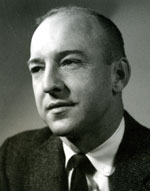
Williams's revisionist argument is to be seen in this context. As he worked through the history of Soviet-American relations, it occurred to him that American policy since 1917 had been neither isolationist nor pragmatic. Instead, he discovered in it a strong strain of ideological rigidity and intolerance. Not pragmatic calculation, but sheer hatred and ideological revulsion for the revolutionary society of Soviet Russia were in his opinion responsible for the fact that the United States - even under its "pacifist" president, Woodrow Wilson - had taken part in attempts to put aside the new revolutionary order by military intervention. And could not the Second World War itself have been prevented, asked Williams, if American diplomacy had taken upon itself to draw the Soviet Union into a political-military alliance against Japan and Hitler's Germany?
Still, this ideological intolerance, Williams argued was not just the result of empty zealotry. He traced it back to entirely concrete ideas held by the political and economic elites, with origins in the eighteen-nineties. Frederick Jackson Turner in his famous "frontier thesis" of 1893 had explained democracy in America as a function of the open border to the west and the possibilities for expansion presented by it. After the entire continent had been literally possessed, however, the sole hope for the future lay in transferring the frontier overseas. The domestic political health of democracy depended on the possibility of expansion abroad. In this sense, not only the tycoons of the new "corporate America," but also the wordsmiths of the cultured progressive elites justified their reconciliation to the obvious violations of American traditions - for example, the Spanish-American War and the acquisition of the Philippines.
This aggressive interpretation of the frontier thesis was then combined with the assumption of moral-religious superiority. "To make the world safe for democracy," Woodrow Wilson's famous justification for his military interventions from Mexico to Siberia, implied from the beginning the desire to "shape the world in America's image." For the advocates of such a program, the intention of anyone anywhere to construct a model for society on principles other than those of liberal capitalism must appear to be a dangerous provocation.
Table of Contents
- On Academic Discourse and the Search for Truth
- Father of the Revisionist School
- The Open Door at Home
- A World Power Against its Will
- Transferring the Frontier Overseas
- An Unheard-Of Provocation
- From Corpus Christi to Madison
- Williams the Teacher
- Unexpected Icons
- Into the Mainstream, Briefly
- A Farewell Song


